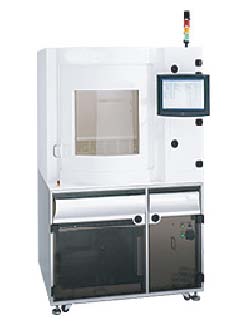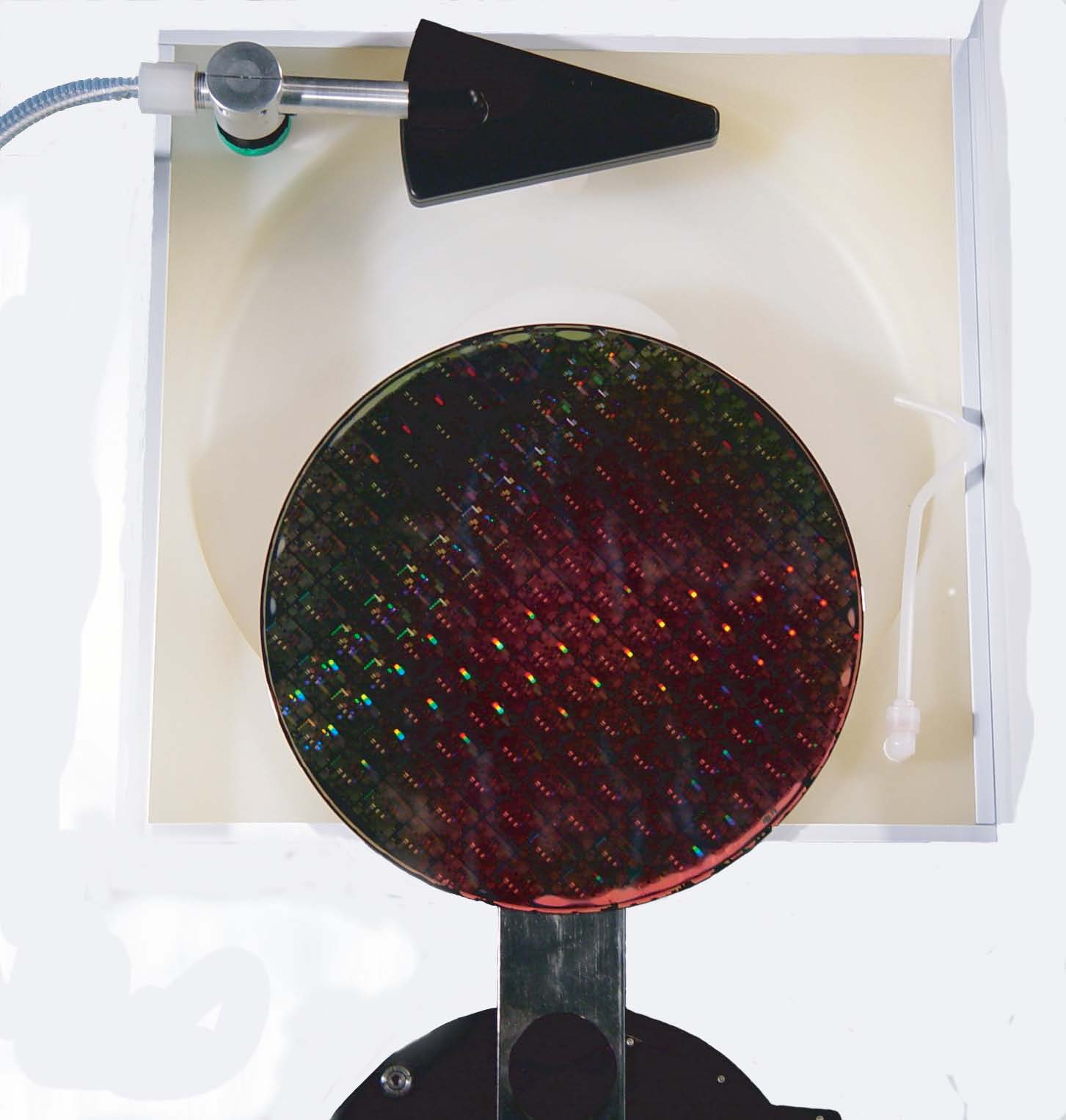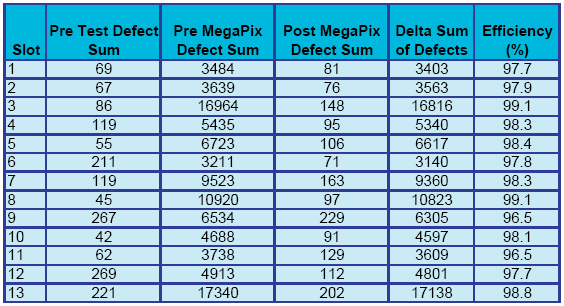MEGA PIXTM - Single Wafer Cleaner
65 nm Megasonic Cleaning Process
50 to 300 mm Wafers & Substrates
Pixelated Megasonics TechnologyTM ChemAcoustic’s PIXELATED MEGASONICS TECHNOLOGY (PMT)TM provides enhanced cleaning performance for a variety of substrates and material surfaces. The insert to the right is a picture of a 300mm pattterned wafer being robotically loaded before the MEGA PIXTM transducer and chemical dispense moves into place. This proprietary cleaning process controls the creation of a precisely tailored energy distribution in terms of both amplitude and spatial distribution. As a result, the substrate is exposed to a uniform cavitation density. The uniformity of the cavitation density is verified pixel by pixel. This allows the use of reduced megasonic power levels and reduced process times which prevent damage without sacrificing cleaning. The typical process sequence takes less than 30 seconds during which the transducer is turned on only during sweep sequences, the exposure time of any topography on the substrate to megasonics power is limited to milliseconds, thereby further minimizing damage. As seen on the left, a sonolumininescence scan of the transducer shows the uniformity of the cavitation density created by the pixilated-tuned transducer. (Each step on the color gradient is within less than 10% of the others.) There are a number of options avialable addressing various substrate sizes, chemistries, etc. One option is the PASSIVE AEROSOL DRYERTM which very efficiently creates an ultra-pure IPA aerosol layer with the robust process flexibility to dry high aspect ratio features and a wide cariety of other applications. Another option is edge loading of the substrates. |
   |

The MEGA PIX cleans 65 nm structures with a particle cleaning efficiency exceeding 97% that is water mark free and without damage to the structures. This particle removal performance was typical of those obtained at a customer’s site while running actual application process to remove nitride particles at 40 RPM and 100 W.
Contact us at:
sales@chemacoustic.com